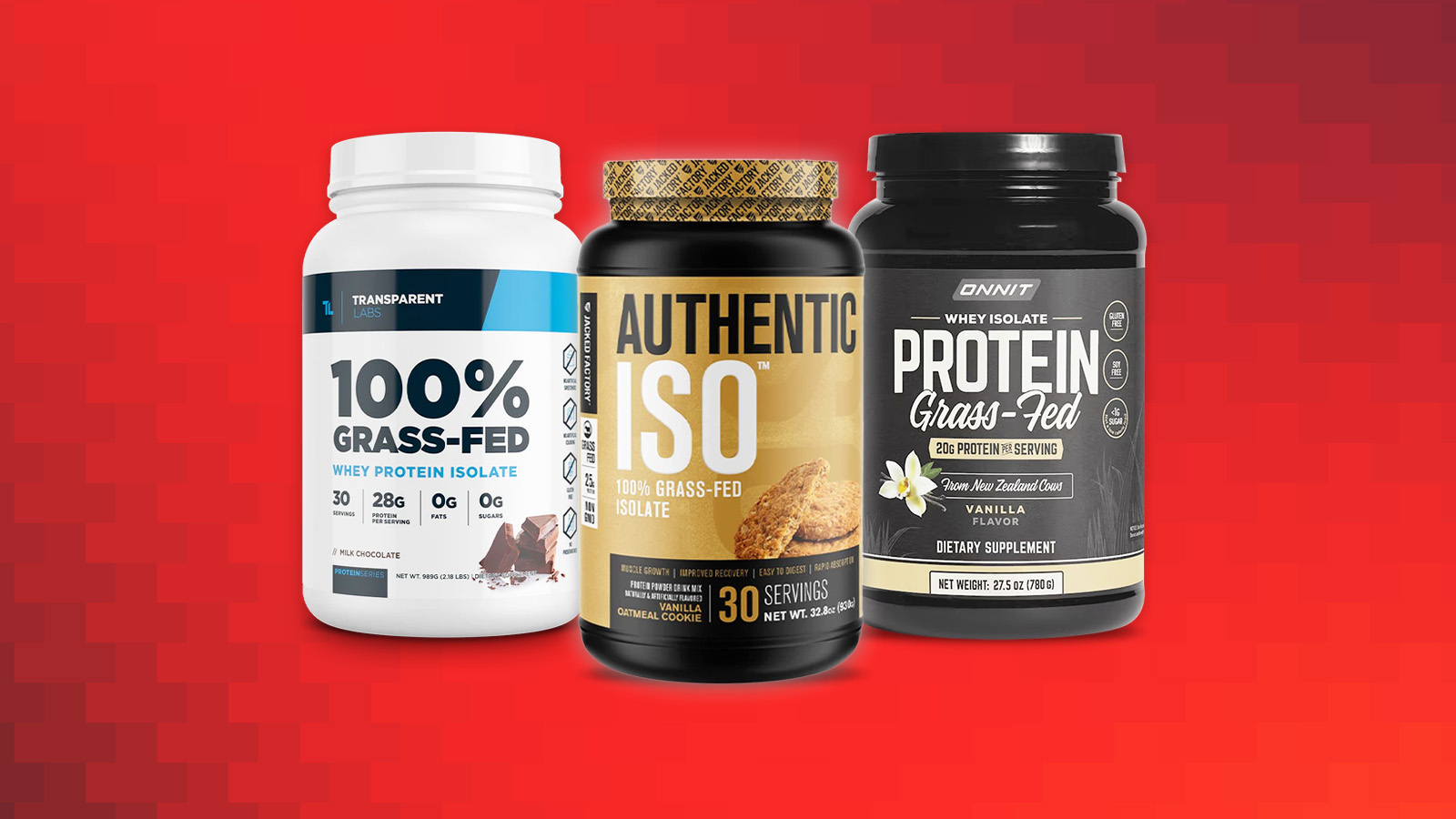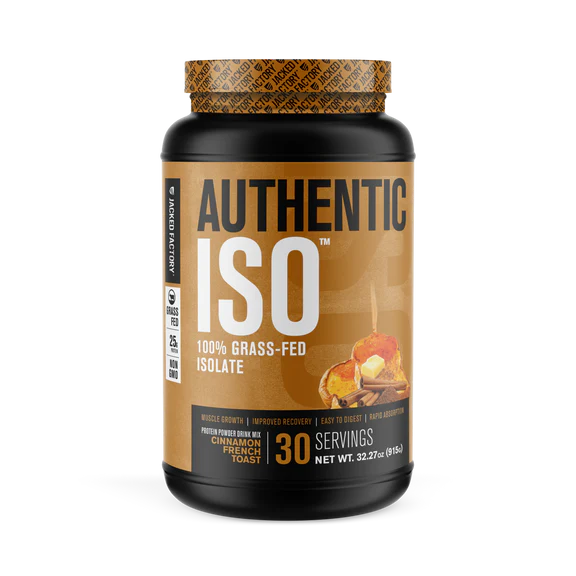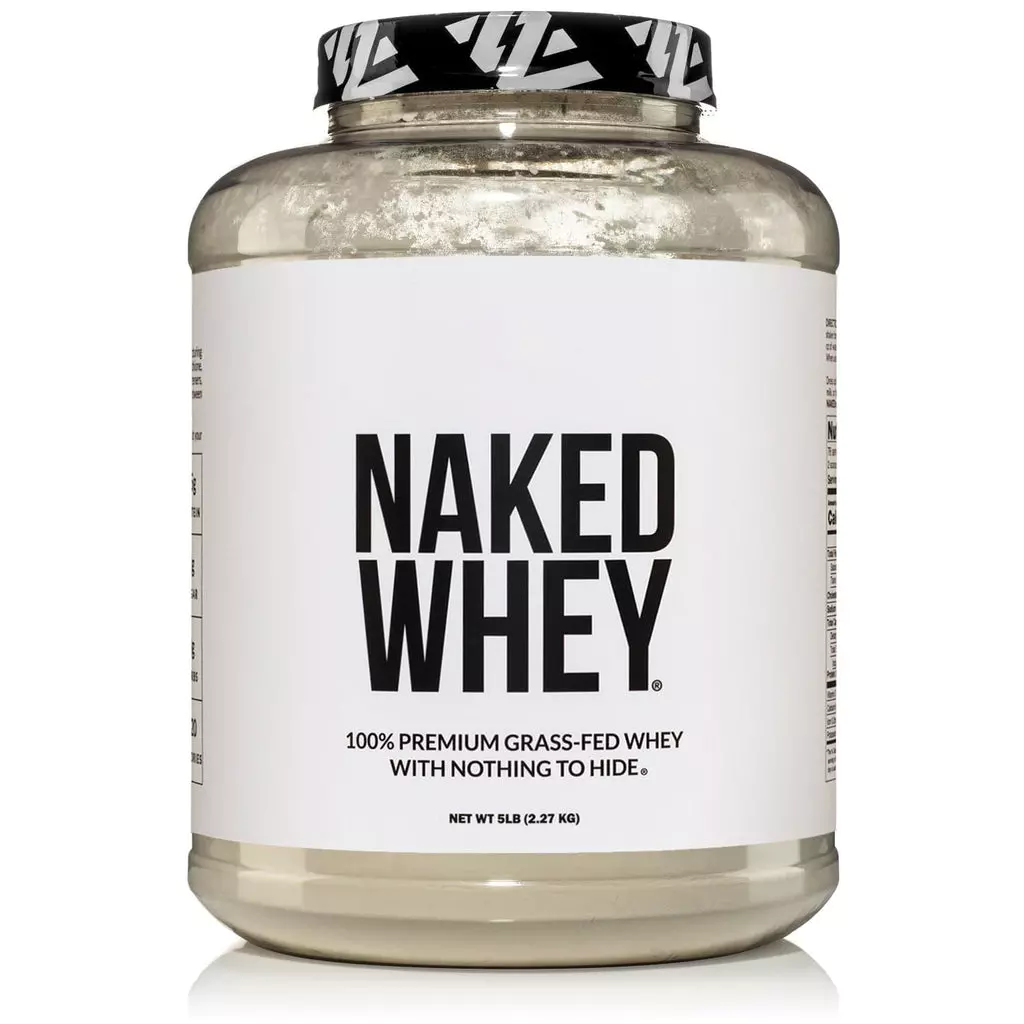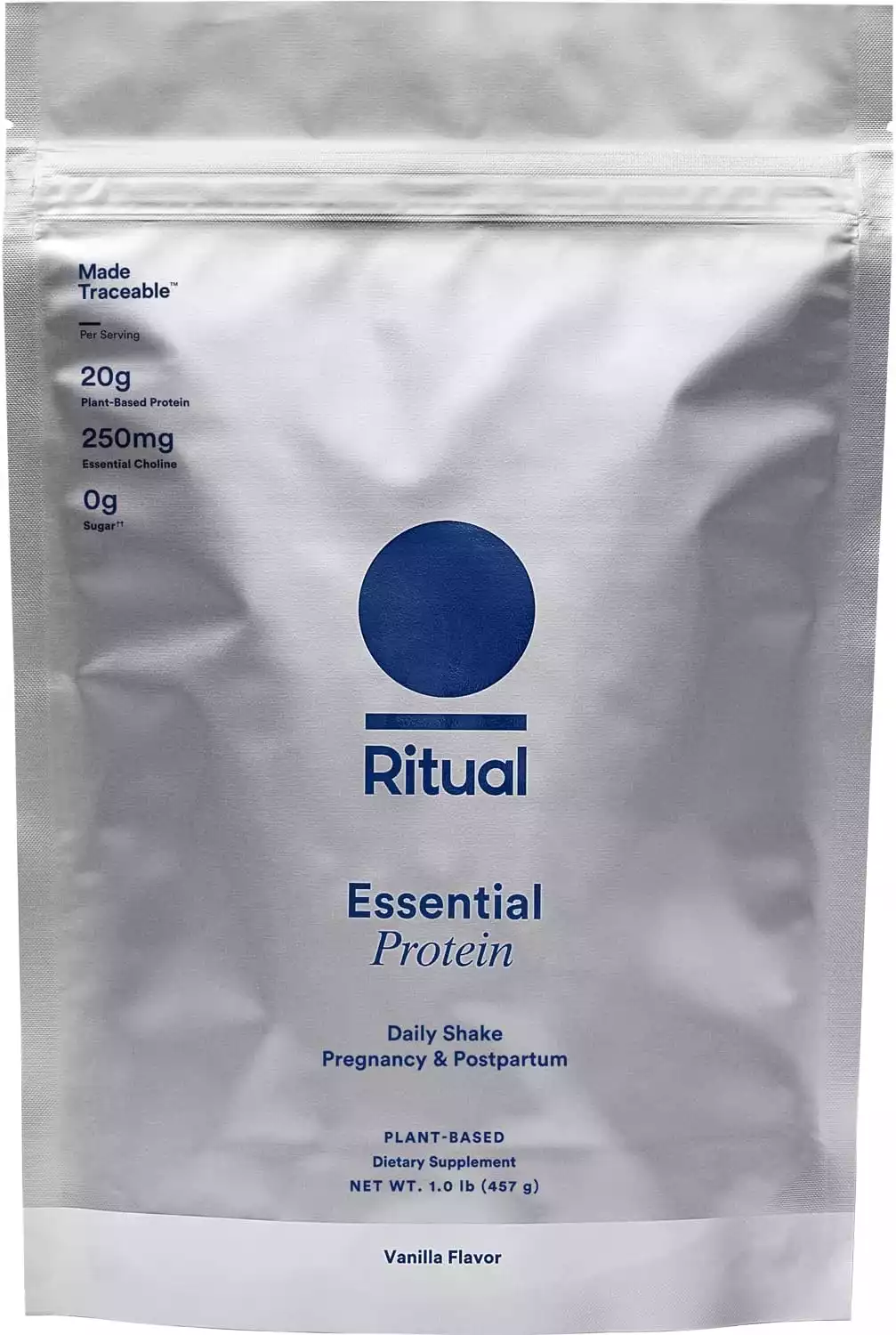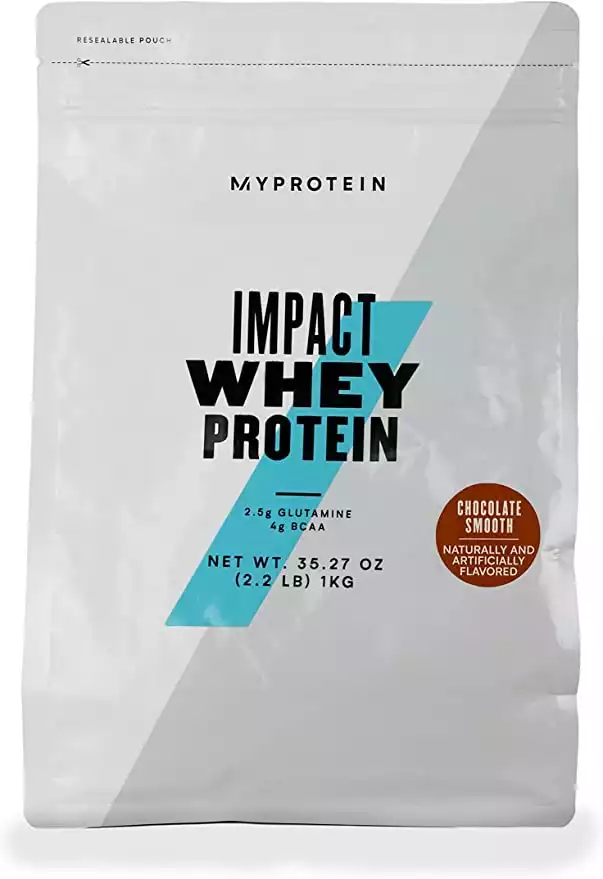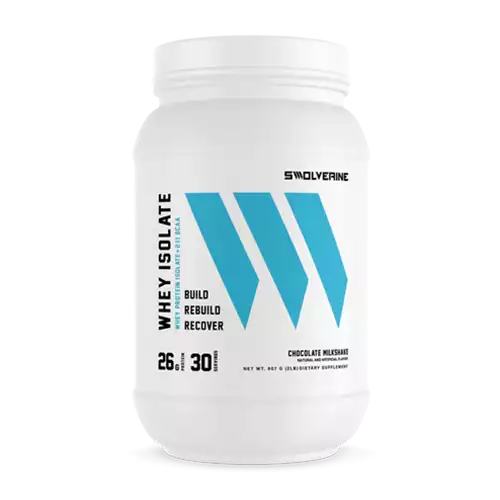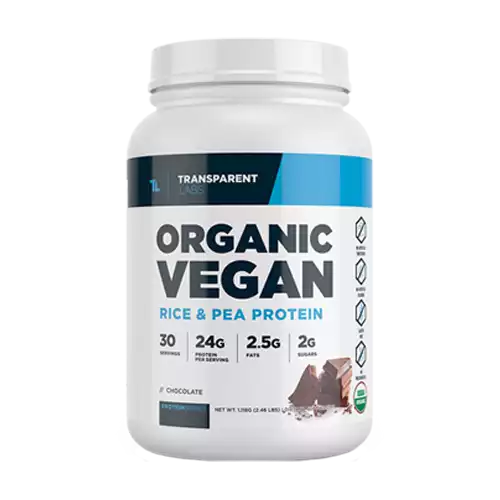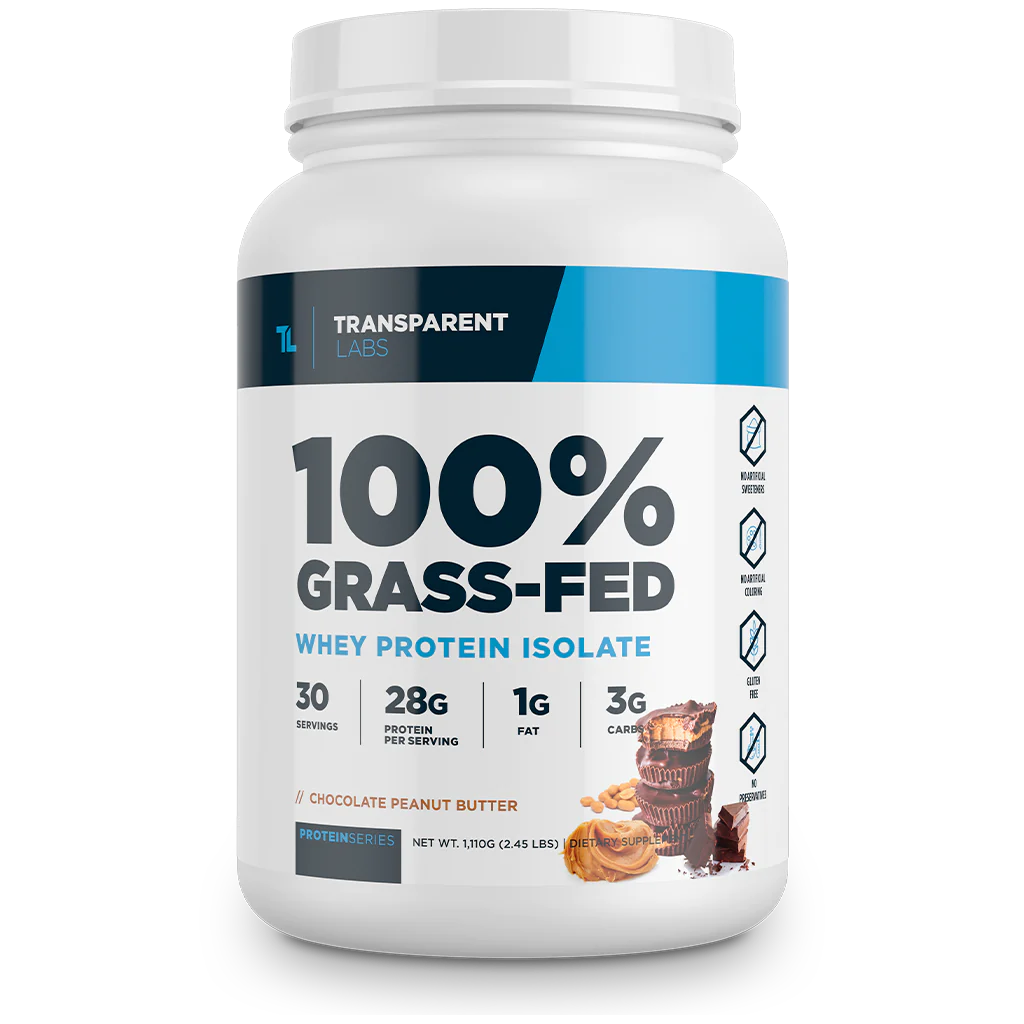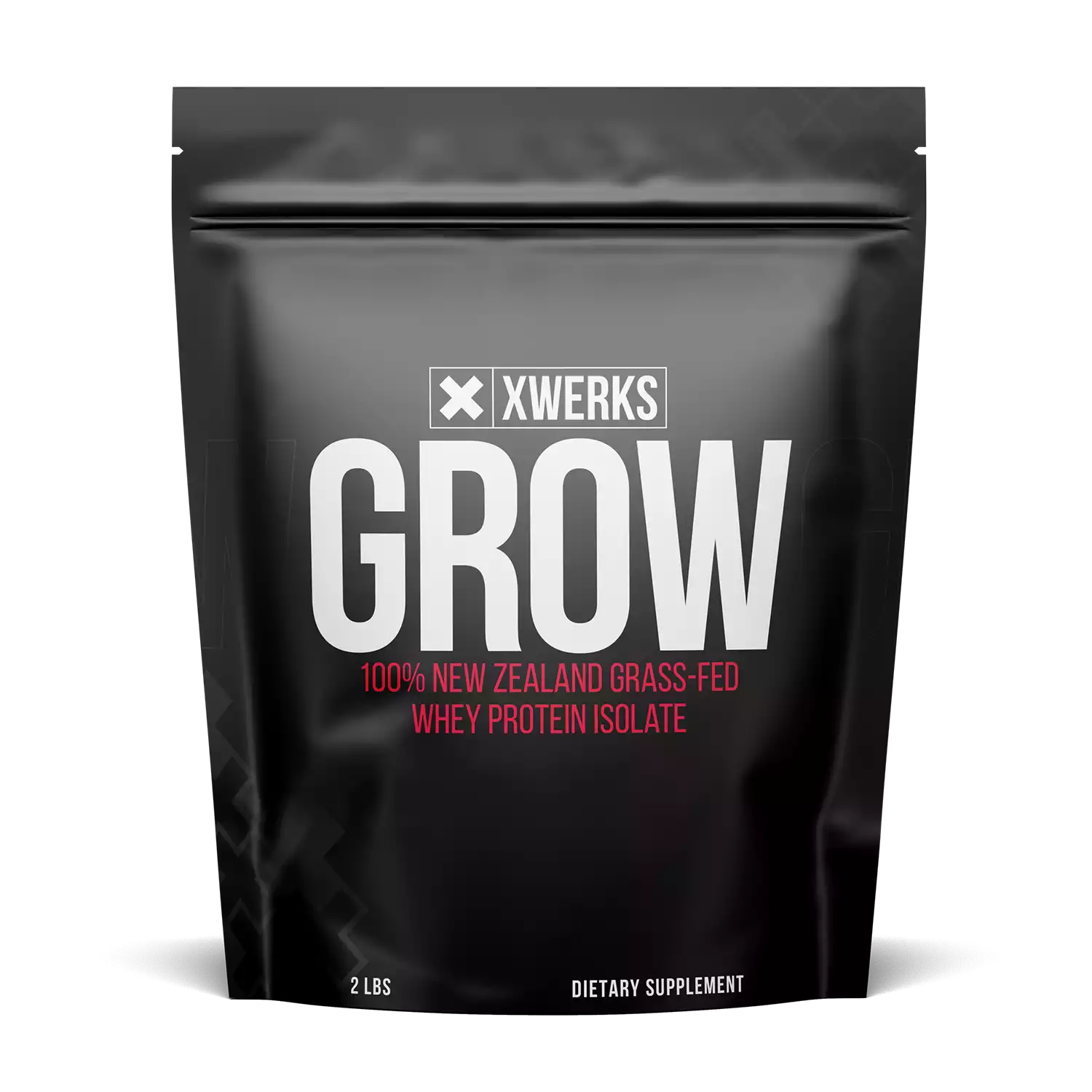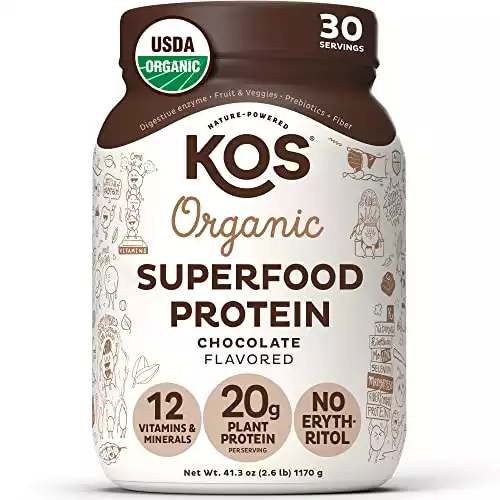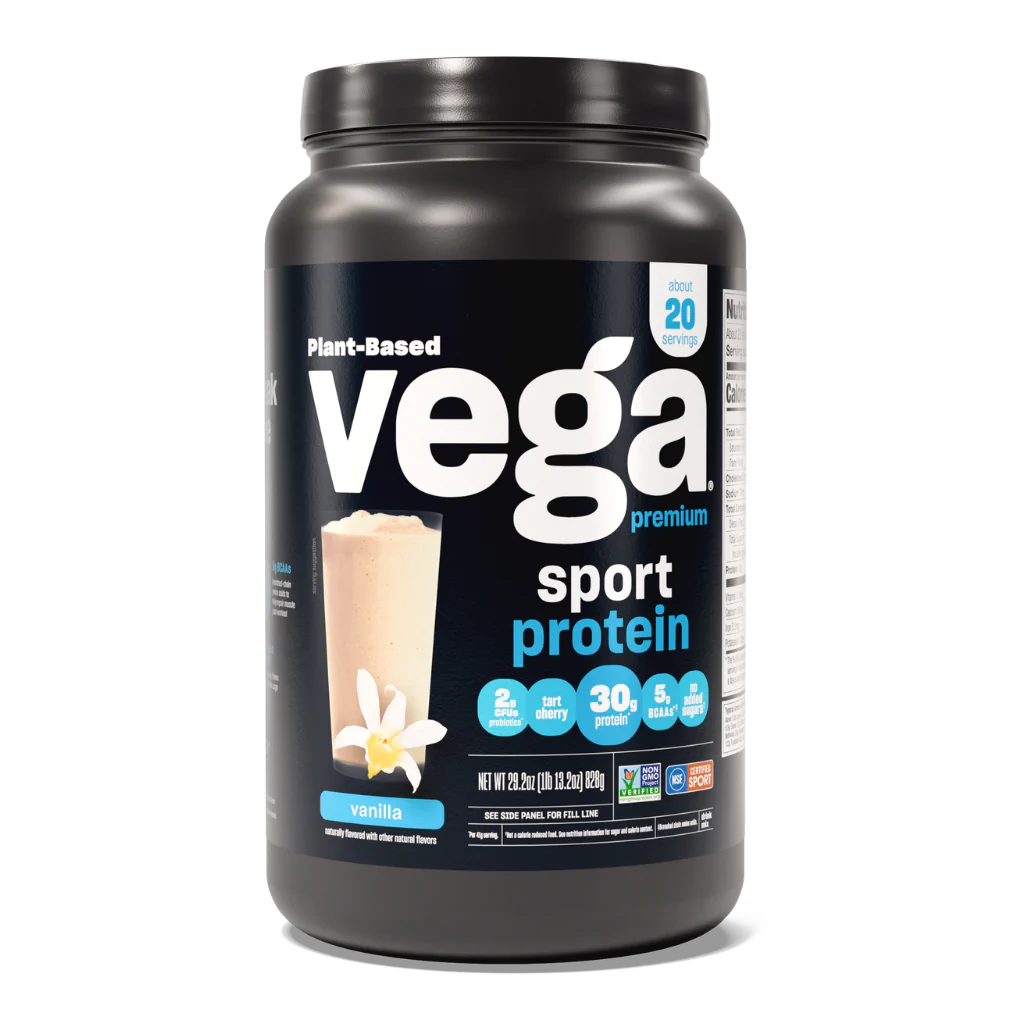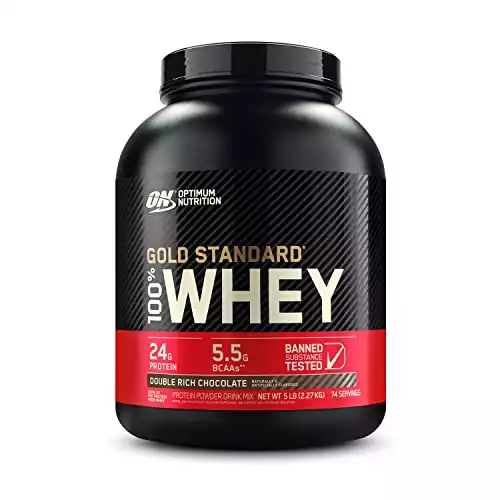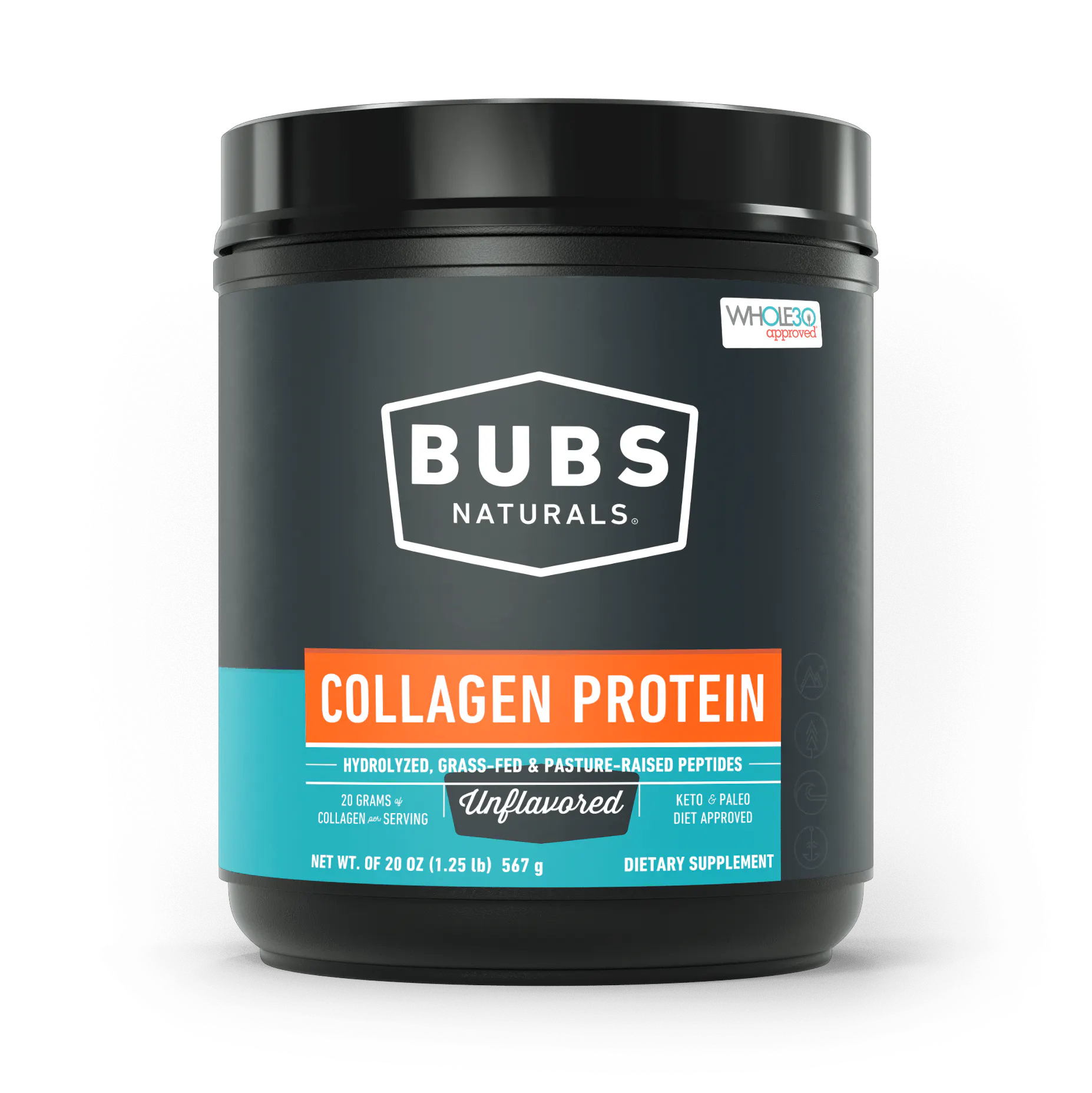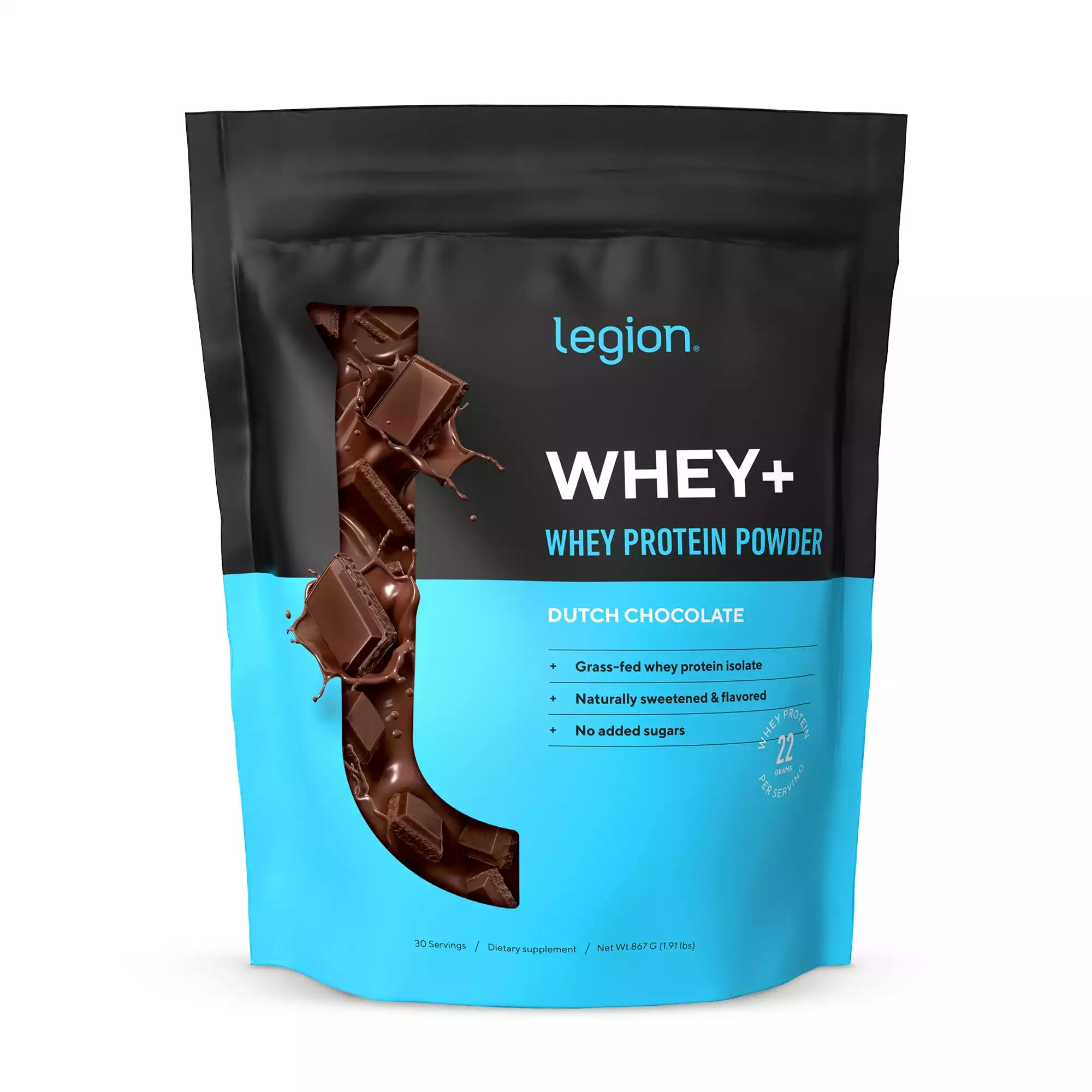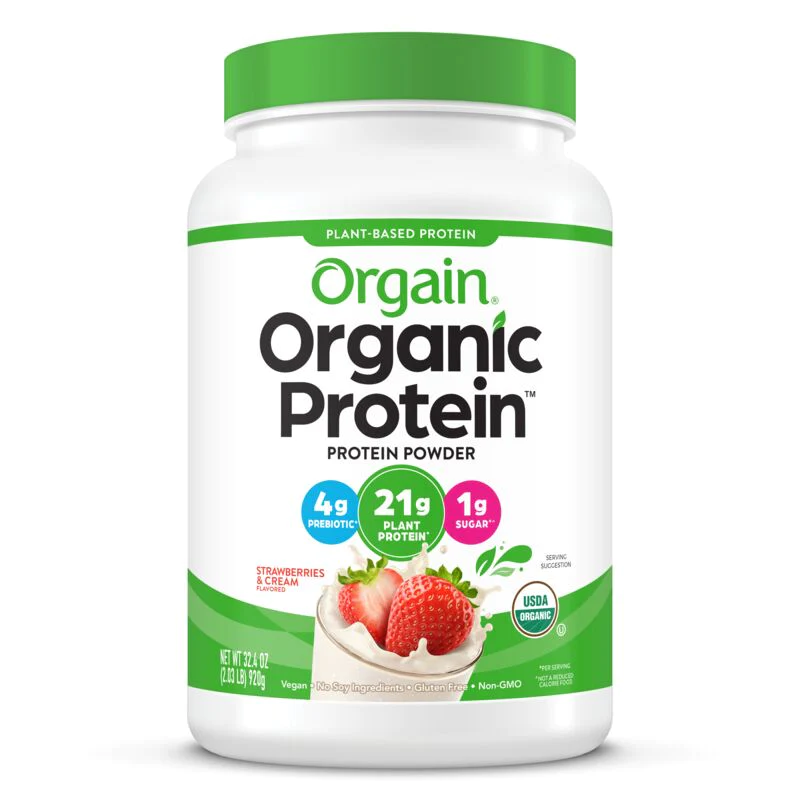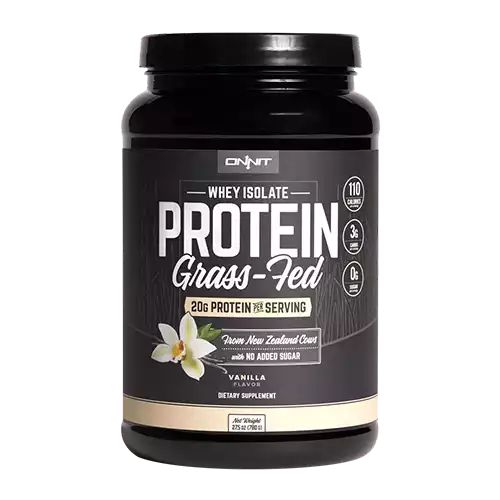Alongside a top-rated creatine supplement, protein powder is one of the most common staples in an athlete’s pantry because it can help support muscle growth and promote post-workout recovery. But you don’t have to be an athlete to take a protein powder supplement. The best protein powders on the market are designed for anyone looking for on-the-go meal options or who wants to increase their daily protein intake.
Different protein powders are better suited for certain lifestyles or training goals, making it difficult to know which one is right for you. As someone who’s used dozens of protein powders over the years, I know what separates high-quality protein supplements from mediocre ones. To help make your search easier, I compiled a list of some of my favorite protein powders as well as the ones our reviews staff liked the most after several hours of research and testing.
Our Top Picks for the Best Protein Powders
Best Overall Protein Powder: Jacked Factory Authentic Iso
Pros
- Reasonably priced
- Smooth texture
- Sourced from grass-fed cows
- High in protein and low in fat and carbs
- Minimal ingredients list
Cons
Jacked Factory Authentic Iso is my top pick for the best overall protein powder because it is affordable, tastes great, and doesn’t have a lot of additives. I love that it provides 25 grams of whey protein isolate per serving, which is higher than many other protein powders I’ve seen. It also mixes well and has a smooth texture, so you don’t have to worry about clumps of powder in your protein shake.
Because it’s made from whey protein isolate, it contains just 0.5 grams of fats and one gram of carbohydrates, so it can easily fit into a low-fat or low-carb diet. It can also be a better option for those with lactose intolerance since whey protein isolate has very little lactose and may not cause digestive issues.
One of the only faults I could find is that it is sweetened with both sucralose and stevia. It may be too sweet for some, and those who experience bloating or other gastrointestinal issues from artificial sweeteners may want to consider another protein powder.
Jacked Factory Authentic Iso isn’t third-party tested, but it is made in a Current Good Manufacturing Practice (cGMP)-certified and FDA-registered facility. You can still rest assured that it undergoes thorough quality assurance testing to verify the safety and effectiveness of its ingredients.
Best Unflavored Protein Powder: Naked Nutrition Grass-Fed Whey Protein Powder
Pros
- Sourced from free-roaming, grass-fed cows that aren’t treated with growth hormones
- Certified gluten-free
- Doesn’t contain GMOs, soy, additives, artificial flavors, or artificial sweeteners
Cons
- Expensive
- May leave a foamy layer on the top of your drink if you let it sit for too long
An unflavored protein powder is good to keep in your pantry because it blends well with everything. It allows you to enjoy the natural tastes of the other ingredients you put in a protein smoothie or boost the protein content of savory sauces and soups. You can easily mix it with a high-quality pre-workout supplement before your training session. You can even add it to baked goods and not worry about a strange aftertaste ruining your treats.
While there are many unflavored protein powders on the market, Naked Whey Protein is one of the best. It contains just one ingredient — whey protein concentrate — and boasts 25 grams of protein per serving, whereas many others only have 20 to 23 grams per serving. There are no added sugars, artificial sweeteners or flavors, or food dyes.
Our review staff tested Naked Nutrition’s unflavored whey protein and confirmed that it really does taste like nothing. One drawback we found was that a layer of foam developed in our protein shake after it sat for a while, so we had to keep shaking it. Another negative is that it costs nearly $100 per container. However, you get 76 servings, and it’s unlikely that you’ll find a cleaner protein powder out there, so we think the price is worth it.
Best Protein Powder for Women: Ritual Daily Shake Pregnancy & Postpartum
Pros
- Contains choline, which is necessary for growth in breast-fed infants
- No artificial sweeteners
- Sourced from peas grown in the US
- No gluten, GMOs, or other common allergens
Cons
- Only available in a vanilla flavor
- Small number of servings per pouch
- Expensive
Women don’t necessarily need a different protein powder than men, but there are certain times when our nutritional needs require special consideration. One of those times is during pregnancy or the postpartum period when the body experiences significant hormonal changes, and women have to worry about their health and the health of their baby.
Ritual’s Daily Shake Pregnancy & Postpartum protein powder is one of the only protein supplements I’ve found that’s made specifically for women. One serving provides 250 milligrams of choline, which is necessary for breastfeeding women because it helps with infant growth and development. (1)
Even though it’s labeled as a pregnancy and postpartum supplement, any woman can take it. The choline in it can also help improve brain function and muscle control, and the pea protein provides a dairy-free protein source that can help women who lift weights build and maintain lean muscle mass. (2)(3)
Vanilla is the only flavor available, but it mixes well with other foods and drinks. However, it does have a gritty texture, though this isn’t unusual for plant-based protein powders because plants have a higher fiber content.
Another drawback is the price, as it costs $2.67 per serving. But I’ve been buying protein powder for over a decade, and Ritual’s Daily Shake Pregnancy & Postpartum is the only one I’ve seen that contains choline. Plus, it’s third-party tested, so paying more can be worth it for women who want to ensure they’re putting safe products in their bodies.
Best Protein Powder for Weight Loss: Myprotein Impact Whey Protein
Myprotein Impact Whey Protein Powder
- Protein type: Whey protein concentrate
- Number of servings: 10 to 200
- Cost: $0.95 to $1.30 per serving
- Calories per serving: 100
- Protein per serving: 19 grams
- Flavors: Birthday Cake, Chocolate, Chocolate Brownie, Chocolate Mint, Chocolate Smooth, Chocolate Stevia, Cinnamon Cereal, Fruity Cereal, Marshmallow Cereal, Mocha, Salted Caramel, Strawberry Cream, Unflavored, Vanilla, Vanilla Stevia, White Chocolate Peppermint
- Third-party tested: No
Pros
- Large range of flavors to choose from
- Not too expensive
- Mixes well in liquids or with foods like oatmeal
Cons
- Low amount of protein per serving
- Sweetened with artificial sweeteners
Myprotein’s Impact Whey has been a staple in my supplement routine for years. With just 100 calories per scoop, it’s one of the lowest-calorie options on this list, making it ideal for those on a weight loss journey.
I’ve tried the Chocolate Brownie, Chocolate Mint, and Vanilla flavors, and they all had a good flavor and didn’t taste chalky. I especially loved mixing the Chocolate Mint powder in coffee to make a higher-protein, lower-sugar version of a peppermint mocha from Starbucks. I also frequently mix the Chocolate Brownie and Vanilla protein powders with oatmeal, peanut butter, and a banana when I don’t feel like cooking a complicated breakfast. They dissolve well and don’t have a gritty texture.
Most flavors contain artificial sweeteners, soy lecithin, and modified food starch. These ingredients help enhance the taste and solubility, and they’re safe in small quantities, but their inclusions mean this isn’t an all-natural protein powder. (4)(5) Some individuals also experience bloating and gas from artificial sweeteners.
Furthermore, one serving of Impact Whey only provides 19 grams of protein. This is the lowest on our list, but it’s still decent, as I wouldn’t recommend buying a protein powder with less than 15 grams of protein per serving. If you’re willing to overlook the low protein content and the non-natural ingredients, this low-calorie protein powder can be a great way to keep your protein intake high while on a fat-loss diet.
Best Tasting Protein Powder: Jacked Factory Authentic Iso
Pros
- One of the more affordable protein powders available
- Delicious flavors that mix well in water, milk, coffee, or baked goods
- Offers a high amount of protein per serving
Cons
- Sweetened with stevia and sucralose, so it may be too sweet for some
Even though there aren’t many flavors to choose from with Jacked Factory’s Authentic Iso protein powder, they taste great and don’t leave a chemical or medicinal aftertaste behind. The flavors are pretty neutral, so you can drink the protein powder on its own or blend it with fruit, add it to baked goods, or mix it in a cup of coffee to boost the protein content.
Another attractive feature of Jacked Factory Authentic Iso is its price — it’s just around $1.33 per serving. This is reasonable for a whey protein isolate, which tends to cost closer to $2.00 per serving since the whey undergoes a lot of processing to remove the fat and carbs.
Despite the lower price, you still get a quality product, as it has a minimal ingredient list. Whey protein isolate, natural and artificial flavors, Himalayan rock salt, sucralose, and stevia extract are the only ingredients.
That said, because it contains both sucralose and stevia, you may find it too sweet if you normally consume unsweetened protein powders. The sucralose may also cause bloating or gassiness in those who are sensitive to artificial sweeteners. Still, for an affordable, versatile, tasty protein powder, this can be a good option.
Best Whey Protein Powder: Swolverine Whey Protein Isolate
Swolverine Whey Protein Isolate
- Protein type: Whey isolate
- Number of servings: 30
- Cost: $2.10 per serving
- Calories per serving: 110
- Protein per serving: 26 grams
- Flavors: Chocolate, Honey Cinnamon Peanut Butter, Mint Chocolate Chip, Strawberry, Vanilla
- Third-party tested: Lief and Micro Quality Labs
Pros
- Contains two digestive enzymes to help increase absorption
- Sourced from grass-fed, antibiotic-free cows
- High amount of protein per serving
- Gluten-free and non-GMO
Cons
- Not a lot of flavor variety
- Pricey
Swolverine Whey Protein Isolate is my pick for the best whey protein powder because it’s made with whey isolate, a fast-digesting form of whey with little to no lactose, and has 26 grams of protein per serving, which is among the highest on this list. I also appreciate that it has papain and protease, digestive enzymes that can help increase the protein powder’s absorption rate and lead to faster recovery after workouts.
Our review staff tried the chocolate flavor and enjoyed how smooth and creamy it was when they mixed it with milk. However, they didn’t like its thin consistency when they mixed it with water. It has great dissolvability and doesn’t leave clumps behind, though, which is a plus for those who don’t like weird textures in their protein shakes.
Swolverine Whey Protein Isolate isn’t all-natural because it contains sucralose, an artificial sweetener, and xanthan gum, a thickening agent. For a protein powder that costs around $2.10 per serving, I would have liked to see a product without any artificial ingredients. But if you don’t have sensitivities to either ingredient, and you don’t mind paying more to get a higher amount of protein per serving, this is a solid choice.
Best Vegan Protein Powder: Transparent Labs Organic Vegan Rice & Pea Protein
Pros
- No artificial sweeteners, colorings, or preservatives
- High amount of protein per serving
- USDA certified organic
Cons
- Chocolate flavor has seven grams of carbs, which may be too high for those on keto or low-carb diets
- Some users may notice an aftertaste due to the stevia
While whey protein makes up a large portion of protein powders on the market, several brands also produce plant-based protein powders that are suitable for vegans and lactose-intolerant individuals. I recommend Transparent Labs Rice & Pea Protein because it contains two types of protein sources, which can help vegans get the nine essential amino acids the body needs to function properly, and it doesn’t contain any unnecessary fillers.
RELATED: How Plant Protein Differs from Animal Protein
There are no added sugars or artificial sweeteners, but there is stevia, which some may find bitter tasting. Because it’s derived from plant sources, it also has an earthy flavor that can be overpowering. But it’s not as gritty as some vegan protein powders, so this could be a good option if you’re looking for a smooth plant-based protein powder and don’t mind the earthy taste.
Best Protein Powder for Muscle Gain: Transparent Labs 100% Grass-Fed Whey Protein Isolate
Transparent Labs Grass-Fed Whey Protein Isolate
- Protein type: Whey protein isolate
- Number of servings: 30
- Cost: $2.00 per serving
- Calories per serving: 120 to 150
- Protein per serving: 28 grams
- Flavors: Chocolate Peanut Butter, Cinnamon French Toast, French Vanilla, Milk Chocolate, Mocha, Oatmeal Chocolate Chip Cookie, Strawberry, Unflavored, Vanilla Peanut Butter
- Third-party tested: Yes, by independent labs
Pros
- Has a fully transparent label
- Sourced from grass-fed cows
- No gluten, GMOs, artificial sweeteners, food dyes, or preservatives
Cons
In addition to being sourced from whey isolate, which has a higher concentration of protein than whey concentrate, there are no unnecessary fillers in Transparent Labs’ whey protein powder, so you get more protein per serving. For those reasons, it’s my top pick for a protein powder for those looking to maximize muscle growth with a high-protein diet alongside a muscle-building training routine.
It is sweetened with stevia, but it’s not cloyingly sweet and doesn’t leave a bitter aftertaste like other products with stevia can. The solubility is excellent, as our reviews team had no issues getting it to dissolve in water or milk with a shaker bottle. We tried the Peppermint Hot Chocolate flavor, which is no longer available at the time of this writing. But given how perfectly the name matched the taste, we think it’s safe to say that the other flavors are on point, too.
Best Protein Powder for Men: XWERKS Grow
XWERKS Grow
Protein type: Whey protein isolate
Number of servings: 30
Cost: $1.97 per serving
Calories per serving: 110
Protein per serving: 23 to 25 grams
Flavors: Chocolate, Peanut Butter, Strawberry, Vanilla
Third-party tested: No
Pros
- Doesn’t leave any clumps behind after mixing
- Sourced from grass-fed cows from New Zealand that are not treated with antibiotics or growth hormones
- Keto-friendly and gluten-free
- No added sugar
Cons
As mentioned earlier, there really aren’t gender-specific protein powders. But we know that building muscle is a common goal amongst male gym-goers, and using protein powder to help increase your daily protein intake can help with that. XWERKS Grow offers 25 grams of protein per serving (though the peanut butter flavor only has 23), making it an ideal choice for men who may need to add more protein to their diets.
A member of our review staff tested the chocolate flavor and said it tasted like a chocolate milkshake. He also noted that he didn’t have any issues getting it to dissolve in liquids, which is a plus if you don’t like gritty protein powders.
XWERKS Grow is expensive, but there are no artificial sweeteners or food dyes, and xanthan gum is the only thickening agent used. For a smooth, great-tasting protein powder with a quality ingredient list, we think the price is worth it.
Best Organic Protein Powder: KOS Organic Superfood Protein
KOS Vegan Protein Powder
- Protein type: Chia seed, flax seed, pea, pumpkin, quinoa
- Number of servings: 30
- Cost: $1.43 to $1.47 per serving
- Calories per serving: 150 to 160
- Protein per serving: 20 grams
- Flavors: Chocolate, Vanilla
- Third-party tested: No
Pros
- Gluten-, soy-, and dairy-free
- No artificial sweeteners, food dyes, or GMOs
- Contains digestive enzymes to help increase absorption
- Made in a GMP-certified facility
Cons
- Higher in fats and carbs than other options
- Has some proprietary blends
Organic protein powder isn’t necessarily better than non-organic protein powder in terms of protein content or overall macronutrient breakdown. However, if you want to avoid pesticides and GMOs, organic may be the way to go. KOS Organic Superfood carries the USDA Organic seal, meaning all of its ingredients are certified organic.
KOS Organic Superfood Protein contains blends of fruits and vegetables and digestive enzymes. It’s high in beneficial vitamins and minerals, such as selenium, vitamin B12, and copper. Plus, the digestive enzymes make it gentler on the stomach and help improve nutrient absorption. However, the fruit and vegetable extracts and digestive enzymes are hidden behind proprietary blends, so you won’t know how much of each you get in a serving.
One serving of KOS Organic Superfood Protein only has 20 grams of protein and contains five to six grams of fat and eight to nine grams of carbs per serving. This is to be expected since it has many carb-rich fruits and vegetables and fat-rich seeds, but it’s still something to note if you like to track your macros.
Best Keto Protein Powder: Vega Sport Protein
Vega Sport Protein
- Protein type: Alfalfa, pea, pumpkin seed, sunflower seed
- Number of servings: 12 to 20
- Cost: $2.22 to $3.55 per serving
- Calories per serving: 170 to 180
- Protein per serving: 30 grams
- Flavors: Berry, Chocolate, Mocha, Peanut Butter, Vanilla
- Third-party tested: NSF Certified for Sport
Pros
- Includes probiotics to help improve gut health
- Offers a high amount of protein per serving
- Vega plants a tree for every order
Cons
- The price may put it out of reach for some
With just two to four net carbs (the number of carbs minus the amount of dietary fiber) per serving, Vega Sport protein powder is a solid choice for those following a keto diet. It doesn’t have added sugars and is instead sweetened with stevia, which helps keep the carbohydrate content low. It only has 3.5 to four grams of fat per serving, which may be too low if you’re trying to keep your fat intake high, but Vega recommends mixing it in a shake with coconut oil to boost the fat content.
RELATED: Are Plant-Based Proteins Friendly for Keto and Paleo Diets?
Vega Sport is available in five flavors that taste great and are not overpowering or chalky. Some reviewers complain of it being difficult to blend, but our reviews staff didn’t have any issues getting the Mocha flavor to dissolve in a cup of coffee.
Vega Sport can cost as much as $3.55 per serving, more than any other protein powder I’ve seen. The higher price is due to the presence of probiotics and tart cherry juice, which aren’t in most protein powders but can help improve gut health and promote post-workout recovery. (6)(7)
Buying the XL tub lowers the cost to just around $2.22 per serving, but you may be stuck with a huge container with 40+ servings if you don’t like it. I recommend buying the large tub with 19 to 20 servings first to test it out. If you become a fan of it, you can then buy the XL container whenever you need to replenish your supply.
Best Cheap Protein Powder: Optimum Nutrition Gold Standard 100% Whey Protein Powder
Optimum Nutrition Gold Standard 100% Whey Protein Powder
- Protein type: Whey concentrate, whey isolate, hydrolyzed whey
- Number of servings: 71 to 76
- Cost: $1.12 to $1.19 per serving
- Calories per serving: 112 to 130
- Protein per serving: 24 grams
- Flavors: Banana Cream, Chocolate Coconut, Chocolate Malt, Chocolate Mint, Coffee, Delicious Strawberry, Double Rich Chocolate, French Vanilla, Rocky Road, Strawberry Banana
- Third-party tested: Informed Choice
Pros
- Tastes great, even in water
- Non-gritty texture
- Low in carbs and fats
- Sourced from cows that are not treated with growth hormones
Cons
- Most flavors have artificial flavors and sweeteners
Optimum Nutrition’s Gold Standard Whey was the first protein powder I bought when I started getting more serious about my training and nutrition nearly eight years ago, and I still include it in my protein supplement rotation. Third-party tested protein powders are often more expensive, but Gold Standard Whey, which is analyzed by Informed Choice to ensure its safety and label accuracy, is still affordable and costs just over $1.00 per serving.
The Double Rich Chocolate flavor is my favorite, but I’ve also had French Vanilla Creme, Vanilla Ice Cream, and Extreme Milk Chocolate. All of the flavors I’ve used tasted great both in water and when mixed in a fruit smoothie, and they have a smooth texture. Depending on which flavor you get, the ingredients list may include sucralose, artificial flavors, and thickening agents, which is something to note if you are sensitive to those ingredients or want a more natural product.
Gold Standard Whey uses a blend of whey concentrate, whey isolate, and hydrolyzed whey (I discuss the differences between the three types of whey below). One serving offers 24 grams of protein, 1.5 grams of fat, and three grams of carbs. The fat and carb contents are higher than what you’d find in a whey isolate powder, which has minimal fat and carbs, but they are still lower than other whey protein blends.
Best Collagen Protein Powder: BUBS Collagen Peptides
BUBS Naturals Collagen Peptides Powder
- Protein type: Collagen peptides
- Number of servings: 14 to 28
- Cost: $1.67 to $2.57 per serving
- Calories per serving: 70
- Protein per serving: 18 grams
- Flavors: Unflavored
- Third-party tested: NSF Certified for Sport
Pros
- Dissolves well, especially in warm liquids
- Doesn’t contain any gluten, dairy, soy, nuts, corn, or GMOs
- Keto-friendly
- Sourced from cows that aren’t treated with hormones
Cons
Collagen protein has been a part of my supplement stack for several years, and BUBS Collagen Peptides is one of my favorites. With other brands, I never noticed any of the purported benefits of collagen, such as stronger hair and nails and less joint pain. (8)(9)(10) When I take BUBS, I do notice that my hair and nails feel healthier, and I experience less discomfort in my knees, despite the fact that I squat, run, and jump a lot in my workouts.
I mix the BUBS collagen in my post-workout protein shake or, on rest days, in my morning cup of coffee. It dissolves well both ways and when I pour it into a cup of coffee, I don’t even have to stir it.
Collagen protein generally has a neutral taste, but some brands I’ve used in the past tasted funky, even when I mixed them with other supplement powders or flavored beverages. I’ve never had that issue with BUBS, which is part of the reason I keep going back to it.
BUBS Collagen Peptides are on the more expensive side, as you can find collagen protein for less than a dollar per serving. But BUBS doesn’t contain any gluten, dairy, corn, nuts, soy, or GMOs, and it’s third-party tested by NSF Certified Sport to ensure it’s not contaminated with banned substances. Paying more may be worth it if you want extra reassurance that you’re consuming a clean collagen protein.
Best Protein Powder for Smoothies: Impact Whey Protein
Myprotein Impact Whey Protein Powder
- Protein type: Whey protein concentrate
- Number of servings: 10 to 200
- Cost: $0.95 to $1.30 per serving
- Calories per serving: 100
- Protein per serving: 19 grams
- Flavors: Birthday Cake, Chocolate, Chocolate Brownie, Chocolate Mint, Chocolate Smooth, Chocolate Stevia, Cinnamon Cereal, Fruity Cereal, Marshmallow Cereal, Mocha, Salted Caramel, Strawberry Cream, Unflavored, Vanilla, Vanilla Stevia, White Chocolate Peppermint
- Third-party tested: No
Pros
- Available in 16 flavors and an unflavored version
- Reasonable price point
- Dissolves well and has no gritty texture
Cons
- Protein content is low compared to other options
- Contains artificial sweeteners
The large range of flavors and the easy mixability of Myprotein’s Impact Whey Protein make it an ideal protein powder for smoothies. The vanilla and chocolate flavors pair well with most fruits, nut butters, and other ingredients you add to your protein shake. If you want a protein powder that will make a more decadent smoothie, you can opt for dessert-inspired flavors like Strawberry Cream.
Impact Whey Protein is sweetened with sucralose, and some flavors, such as Salted Caramel, also contain maltodextrin. The sweeteners can make the protein powder unappealing for those who don’t like sugary-tasting smoothies, but they can help curb a sweet tooth if you want to swap out your nightly dessert for something a bit healthier.
With just 19 grams of protein per serving, Impact Whey has the lowest protein content of any protein powder on this list. But it also comes at an affordable price, especially if you buy the 5.5 or 11-pound bags, which cost around $0.95 to $1.00 per serving. If you want to boost the protein content of your smoothie, you can use one and a half or two scoops instead of one. Even though you’ll go through the pouch more quickly, the reasonable price point means you won’t have to break the bank whenever you need to replenish your supply.
Best Natural Protein Powder: Legion Whey+
Legion Whey Protein Powder Chocolate
- Protein type: Whey isolate
- Number of servings: 30 to 78
- Cost: $1.54 to $2.00 per serving
- Calories per serving: 100 to 130
- Protein per serving: 21 to 24 grams
- Flavors: Apple Pie, Banana Bread, Cinnamon Cereal, Dutch Chocolate, Birthday Cake, Chocolate Peanut Butter, Cocoa Cereal, Cookies & Cream, French Vanilla, Fruity Cereal, Honey Cereal, Mocha Cappucino, Pumpkin Pie, Salted Caramel, Strawberry Banana, Unflavored
- Third-party tested: Labdoor
Pros
- Smooth, non-gritty texture
- Sourced from grass-fed cows from Ireland
- May be safe for those with lactose intolerance
- Doesn’t contain any added sugars or artificial sweeteners
- Made in the USA
Cons
For a clean whey protein powder that contains no artificial flavors, fake sugars, food dyes, or other additives, Legion Whey+ is my top pick. The whey protein isolate is sourced from grass-fed Irish cows, which are known for producing higher-quality milk than cows from other countries. (11) Plus, Legion Whey+ is third-party tested by Labdoor, and Legion discloses the test results on its website, so you can trust that the nutrition label is accurate.
Legion Whey+ is one of the smoothest protein powders I’ve ever used. I tried the Cinnamon Cereal flavor and found it reminiscent of the leftover milk from a bowl of Cinnamon Toast Crunch. There was a slight aftertaste that I wasn’t fond of when I drank it in water, but it was less noticeable when I mixed the protein powder into a bowl of oatmeal with a banana and peanut butter.
I have rosacea, and some lesser-quality whey protein powders I’ve used in the past have made my symptoms worse. I’ve consumed up to two scoops of Legion Whey+ per day without experiencing any breakouts or skin irritation, which speaks to the quality of its ingredients. I’m not lactose-intolerant, but because Legion Whey+ is virtually lactose-free, those who are may be able to enjoy this protein powder without experiencing negative side effects.
Best Protein Powder for Diabetics: Orgain Organic Protein™ Plant Based Protein Powder
Orgain Organic Plant-Based Protein Powder
- Protein type: Pea protein, brown rice protein, chia seed protein
- Number of servings: 10 to 20
- Cost: $1.23 to $1.69 per serving
- Calories per serving: 140 to 190
- Protein per serving: 21 grams
- Flavors: Chocolate Coconut, Chocolate Caramel Sea Salt, Chocolate Peanut Butter, Cookies ‘n Cream, Creamy Chocolate Fudge, Iced Coffee, Natural Unsweetened, Peanut Butter, Strawberries & Cream, Vanilla Bean
- Third-party tested: No
Pros
- Certified organic and plant-based
- Several flavors to choose from
- Reasonably priced
- Doesn’t contain sweeteners that can spike blood sugar levels
Cons
- Flavored varieties have 15 to 16 grams of carbs per serving
- Up to 390 milligrams of sodium per serving
- Only 20 servings per container
What makes Orgain’s plant-based protein powder good for diabetics is that it has no added sugars. Instead, it contains sweeteners like stevia and erythritol that don’t impact blood glucose or insulin levels. (12)(13) Additionally, its protein sources include peas, brown rice, and chia seeds, which can all be good for diabetics because they are low on the glycemic scale. When a food has a low glycemic index (GI), it won’t cause significant spikes in blood sugar levels.
One thing to note is that Orgain’s plant-based protein powder is high in carbohydrates, with most flavors offering between 15 and 16 grams per serving. The high carb content makes it unsuitable for keto followers.
Furthermore, each serving contains anywhere from 140 to 190 calories per serving, depending on the flavor. The extra calories come from the chia seeds, which are a calorically dense food, and the creamer base, which includes sunflower oil. It may not be the best option if you’re trying to lose weight, but it can still be a good choice if you’re diabetic since it contains ingredients that can help keep your blood sugar levels stable.
Best Protein Powder for Athletes: Onnit Whey Protein
Onnit Whey Protein
- Protein type: Whey isolate
- Number of servings: 30
- Cost: $2.00 per serving
- Calories per serving: 110
- Protein per serving: 20 grams
- Flavors: Mexican Chocolate, Vanilla
- Third-party tested: Informed Sport
Pros
- Contains two digestive enzymes to help increase its absorption rate and improve digestibility
- Gluten- and soy-free
- Sourced from grass-fed cows from New Zealand
Cons
- Doesn’t have a large variety of flavors
- Pricey
Onnit’s whey protein is ideal for athletes for two main reasons. It’s verified by Informed Sport to ensure it’s not contaminated with substances on the World Anti-Doping Agency’s banned list. And because it’s made with whey protein isolate, which has a higher protein content than whey concentrate, it can better help support muscle growth and post-workout recovery.
This protein powder can also be a good choice for those who can’t tolerate dairy because it contains digestive enzymes that can help it absorb more quickly and cause fewer stomach issues.
Onnit Whey Protein only comes in two flavors: Vanilla and Mexican Chocolate. Our review team tested the Mexican Chocolate flavor and noted that it tasted more unique than any other chocolate protein powder they’ve tried, which is likely due to the cinnamon that adds a hint of spiciness. They liked how creamy it was when mixed with whole milk and oat milk but didn’t enjoy the thin consistency when they mixed it with water.
It’s among the more expensive protein powders on this list, but in addition to it being third-party verified, it’s sourced from grass-fed cows from New Zealand. Even though you have to pay more for it, you get a high-quality product with a nutrition label you can trust.
How We Chose the Best Protein Powders
Below are the criteria we used to come up with the protein powder supplements on our list:
- Price – We analyzed the total cost and cost per serving of each product to ensure there’s an option for every budget. We also analyzed the value you get based on the ingredients list and nutrition label. If a product was expensive but contained lots of fillers or had a low protein content, we left it off our list because we couldn’t justify the higher price.
- Third-party testing – Most of the options that made our list have been independently tested by Informed Sport, NSF Certified for Sport, or Labdoor to ensure the safety of their ingredients and the accuracy of their nutrition labels.
- Flavors – We know that everyone has different tastes, so we came up with a list of protein powders that have a wide range of flavors. Whether you want a versatile flavor like chocolate or vanilla or a dessert-inspired one like cookies and cream, you can find a protein powder above that suits your palate.
- Solubility – When drinking a protein shake, few things are more annoying than having to choke down clumps of powder that didn’t dissolve. The products we reviewed above all blend easily in water or milk, though there are some you may have to shake before taking a sip since the powder settles if it sits for too long.
What Are the Different Types of Protein Powder?
The products we included on our list above include whey, plant-based, and collagen protein powders. This isn’t an exhaustive list of the types of protein powders you can buy, but they are some of the most common.
Whey Protein Powder
Whey protein powder is what you’ll most commonly find on store shelves. It is derived from cow’s milk and is known for its fast digestibility — it digests at a rate of about 10 grams per hour. It is a complete protein because it contains all nine essential amino acids that the body cannot produce on its own. Whey protein is particularly rich in leucine, the amino acid needed for muscle growth.
Within the whey protein family, there are three subtypes:
- Whey concentrate – This is the most affordable type of whey protein because it doesn’t undergo much processing. The protein content by weight of whey concentrate is about 80 percent. The other 20 percent consists of fats and carbohydrates. Myprotein’s Impact Whey Protein is a good example of a high-quality whey concentrate.
- Whey isolate – Whey isolate is processed to remove nearly all of the fats and carbohydrates. Its protein content by weight is about 90 percent. Because whey isolate is very low in lactose, the sugar naturally found in milk, many people with lactose intolerance are able to consume whey isolate without experiencing any negative reactions. From the list above, Transparent Labs Whey Protein Isolate and Legion’s Whey+ are two examples of protein powders made with whey isolate.
- Hydrolyzed whey – Hydrolyzed whey is whey that’s been treated with enzymes or broken down into smaller molecules. It can be gentler on the stomach for those who experience bloating or other digestive issues after consuming protein powder. None of the products we reviewed above are made solely from hydrolyzed whey, but the blend used in Optimum Nutrition Gold Standard’s whey protein includes it.
Plant-Based Protein Powder
Plant-based protein powders can come from peas, soy, brown rice, hemp, pumpkin, sweet potato, or sunflower seeds. They are fantastic choices for vegans or lactose-intolerant individuals since they don’t contain dairy or other animal products.
Not all plant-based proteins are complete proteins, however, because they don’t contain all nine essential amino acids. For example, brown rice protein is incomplete because it has insufficient amounts of the essential amino acids lysine and threonine.
This is why you’ll often see plant-based protein powders with multiple protein sources. Some brands combine brown rice, sunflower seed, and hemp protein powders in their formulations, for instance. Consuming protein from a combination of plant sources can help ensure you get adequate amounts of all nine essential amino acids.
Collagen Protein Powder
Collagen is a structural protein found in the bones, connective tissue, skin, tendons, and cartilage of humans and animals. Research has shown that collagen supplements can help strengthen hair and nails, improve skin elasticity, and prevent joint discomfort. (8)(9)(10)
What Are the Benefits of Protein Powder?
I’m a strong advocate for choosing whole foods over supplements most of the time, but there are several benefits of protein powder that make it a worthwhile product to keep in your pantry.
- It can aid muscle growth and post-workout recovery. Because protein powder contains amino acids that support the growth of new muscle tissue, it can help you build muscle and recover faster after workouts.
- It’s convenient. Protein powder is a great way to consume protein on the go. It’s easier to sip on a protein shake for breakfast than it is to eat scrambled eggs and toast during your commute to work, for instance.
- It can help you increase your protein intake. If you follow a high-protein diet, eating chicken, egg whites, nuts, seeds, and other protein-rich whole-food sources can become boring after a while. Protein powder can provide a delicious way to hit your daily protein goals if you struggle to do so with whole foods alone.
- It’s suitable for most individuals. Protein powders aren’t just for athletes. Most people who want to boost their protein intake can safely consume protein powder as part of a well-rounded diet. However, those with kidney issues should speak with a physician before consuming protein powder, as a high-protein diet may worsen kidney conditions.
What To Look For When Buying Protein Powder
Considering protein powder is something you’ll likely consume several days a week, it’s important to find one with quality ingredients that also tastes good. If you have food allergies or track your macros, it’s also essential to look at the protein source and the macronutrient breakdown of your protein powder.
Protein Type
When it comes to protein powder, there are several different types to choose from. There are dairy-based protein powders like whey concentrate, whey isolate, and hydrolyzed whey; plant-based protein powders like pea or soy; and collagen protein powders. Which one you choose will depend on your dietary preferences and if you have any food allergies.
If you are lactose-intolerant or have sensitivities to dairy products, whey concentrate may not be the best option since it has lactose. However, you may be able to consume whey isolate protein powder because it has a low lactose content. Vegans should look for protein powders with plant-based sources such as peas, brown rice, or soy.
Macronutrient Profile
How much protein, fat, and carbs a protein powder has should weigh into your decision, as the macronutrient breakdown may affect your goals.
For example, if you’re trying to lose weight by following a keto diet, a protein powder with five grams of carbs per serving can make up 25 percent of your daily carb allotment. Whey concentrate tends to have more carbs because it has more lactose, the sugars found in milk. Some plant-based protein powders also have more carbohydrates because they are made from high-carb plant sources such as brown rice. A whey isolate may be best if you want to keep your carb intake low, as it typically contains only one gram of carbohydrate per scoop.
In terms of protein, I look for protein powders with 20 to 25 grams per serving. When combined with other foods like whole-grain bread, fruit, or oatmeal, this amount of protein helps me stay full for at least a couple of hours. It also leaves me plenty of room to prioritize whole food sources for the rest of my daily protein intake.
I also like to look for a protein powder that’s low in fat, especially if it’s one I want to drink after a workout. Fat slows digestion and the absorption of other nutrients, but after a workout, you want protein to hit your muscles quickly so they can recover faster. As such, a protein powder with less than five grams of fat per serving is a good choice for post-workout.
Ingredient List
Most protein supplements contain more than just protein powder. They may also have sweeteners, flavorings, and thickening agents. If you are sensitive to artificial sweeteners like sucralose or thickeners like xanthan gum, you may want to look for a protein powder without those ingredients.
Flavored protein powders can also have peanuts or chunks of gluten-containing cookies. Before making a purchase, you’ll need to read the ingredients list to make sure it doesn’t contain foods you may be allergic to.
Flavors
When spending money on something you’ll consume frequently, it’s important to find a product that tastes good. Protein powders come in many flavors, from traditional chocolate and vanilla to more fun flavors like fruity cereal and cookies and cream. You won’t always know how much you’ll enjoy your protein supplement until you try it, but choosing flavors you know you like in other types of foods is a good starting point.
When Is the Best Time to Have Protein Powder?
In general, the best time to have protein powder is within two hours after a workout. Working out causes microtears in your muscles, and protein helps repair that damage. Protein powder is a fast-digesting protein source that can reach your muscles quickly and help your body begin the recovery process soon after training.
How Do You Know If a Protein Powder is Clean or Safe?
The easiest way to tell if a protein powder is clean or safe is to look for a third-party verification seal. This seal indicates that an independent, third-party laboratory analyzed the protein powder to verify that it’s not contaminated with heavy metals or banned substances and that the nutrition label is accurate.
Some of the most reliable third-party testing agencies include NSF Certified for Sport, Informed Choice, and Informed Sport. If you see badges from these organizations on your tub of protein powder, you can feel more confident that it’s a safe product.
Final Thoughts
Whether you’re looking for a supplement to support muscle growth and recovery or you need quick and easy meal options during busy periods, a high-quality protein powder can help. The products on the list above span a wide range of price points, flavor options, and protein types, so you can easily find one that suits your lifestyle and goals.
Before making a final decision, be sure to analyze the ingredients list and nutrition label, and look for seals that verify that the protein powder was third-party tested. Doing a little extra research and following the guidelines above will help ensure you’re consuming a safe product.
FAQs
Jacked Factory’s Authentic Iso is great for nearly anyone because it has a good macro profile, with 25 grams of protein, one gram of carbohydrate, and 0.5 grams of fat per serving. If you’re vegan or lactose-intolerant, Transparent Labs Rice & Pea Protein is a good choice because it’s dairy-free, offers 24 grams of protein per serving, and doesn’t contain any artificial ingredients.
For beginners trying to build muscle, a whey protein isolate is best. Because it contains less fat and fewer carbs than whey concentrate, it has a higher protein content per serving. If you can’t consume dairy, pea protein powder is a good choice for beginners because it’s higher in leucine, an amino acid that can aid muscle growth, than other plant-based proteins.
The Transparent Labs Whey Protein Isolate is one of the best post-workout protein powders because it’s fast-absorbing and has 28 grams of protein per serving. For a plant-based option, we like Transparent Labs Rice & Pea Protein, which provides 24 grams of protein per serving.
The best protein powders cost anywhere from around $0.95 to $2.00 or more per serving. The price depends on the type of protein used, whether they’re third-party tested, and where they’re manufactured.
For example, whey protein isolate is more expensive than whey concentrate because it undergoes more filtration to remove the lactose. Similarly, third-party verified protein powders and those made in the US cost more because their quality tends to be better. Plant-based protein powders are also more expensive because there is less demand and they require more processing.
Research
- Lewis, E. D., Richard, C., Goruk, S., Wadge, E., Curtis, J. M., Jacobs, R. L., & Field, C. J. (2017). Feeding a Mixture of Choline Forms during Lactation Improves Offspring Growth and Maternal Lymphocyte Response to Ex Vivo Immune Challenges. Nutrients, 9(7), 713. https://doi.org/10.3390/nu9070713
- Moretti, A., Paoletta, M., Liguori, S., Bertone, M., Toro, G., & Iolascon, G. (2020). Choline: An Essential Nutrient for Skeletal Muscle. Nutrients, 12(7), 2144. https://doi.org/10.3390/nu12072144
- Babault, N., Païzis, C., Deley, G. et al. Pea proteins oral supplementation promotes muscle thickness gains during resistance training: a double-blind, randomized, Placebo-controlled clinical trial vs. Whey protein. J Int Soc Sports Nutr 12, 3 (2015). https://doi.org/10.1186/s12970-014-0064-5
- Sharma, A., Amarnath, S., Thulasimani, M., & Ramaswamy, S. (2016). Artificial sweeteners as a sugar substitute: Are they really safe?. Indian journal of pharmacology, 48(3), 237–240. https://doi.org/10.4103/0253-7613.182888
- Soy Lecithin | FARRP | Nebraska. (n.d.). https://farrp.unl.edu/soy-lecithin
- Markowiak, P., & Śliżewska, K. (2017). Effects of Probiotics, Prebiotics, and Synbiotics on Human Health. Nutrients, 9(9), 1021. https://doi.org/10.3390/nu9091021
- Levers, K., Dalton, R., Galvan, E., Goodenough, C., O’Connor, A., Simbo, S., Barringer, N., Mertens-Talcott, S. U., Rasmussen, C., Greenwood, M., Riechman, S., Crouse, S., & Kreider, R. B. (2015). Effects of powdered Montmorency tart cherry supplementation on an acute bout of intense lower body strength exercise in resistance trained males. Journal of the International Society of Sports Nutrition, 12, 41. https://doi.org/10.1186/s12970-015-0102-y
- Hexsel, D., Zague, V., Schunck, M., Siega, C., Camozzato, F. O., & Oesser, S. (2017). Oral supplementation with specific bioactive collagen peptides improves nail growth and reduces symptoms of brittle nails. Journal of cosmetic dermatology, 16(4), 520–526. https://doi.org/10.1111/jocd.12393
- Kim, D. U., Chung, H. C., Choi, J., Sakai, Y., & Lee, B. Y. (2018). Oral Intake of Low-Molecular-Weight Collagen Peptide Improves Hydration, Elasticity, and Wrinkling in Human Skin: A Randomized, Double-Blind, Placebo-Controlled Study. Nutrients, 10(7), 826. https://doi.org/10.3390/nu10070826
- Khatri, M., Naughton, R. J., Clifford, T., Harper, L. D., & Corr, L. (2021). The effects of collagen peptide supplementation on body composition, collagen synthesis, and recovery from joint injury and exercise: a systematic review. Amino acids, 53(10), 1493–1506. https://doi.org/10.1007/s00726-021-03072-x
- B. O’Brien, T. Beresford and P.D. Cotter et al. Irish research response to dairy quality in an era of change. Irish Journal of Agricultural and Food Research. 2022. Vol. 61(1):126-144. DOI: 10.15212/ijafr-2020-0142
- Ajami, M., Seyfi, M., Abdollah Pouri Hosseini, F., Naseri, P., Velayati, A., Mahmoudnia, F., Zahedirad, M., & Hajifaraji, M. (2020). Effects of stevia on glycemic and lipid profile of type 2 diabetic patients: A randomized controlled trial. Avicenna journal of phytomedicine, 10(2), 118–127.
- Noda, K., Nakayama, K., & Oku, T. (1994). Serum glucose and insulin levels and erythritol balance after oral administration of erythritol in healthy subjects. European journal of clinical nutrition, 48(4), 286–292.

